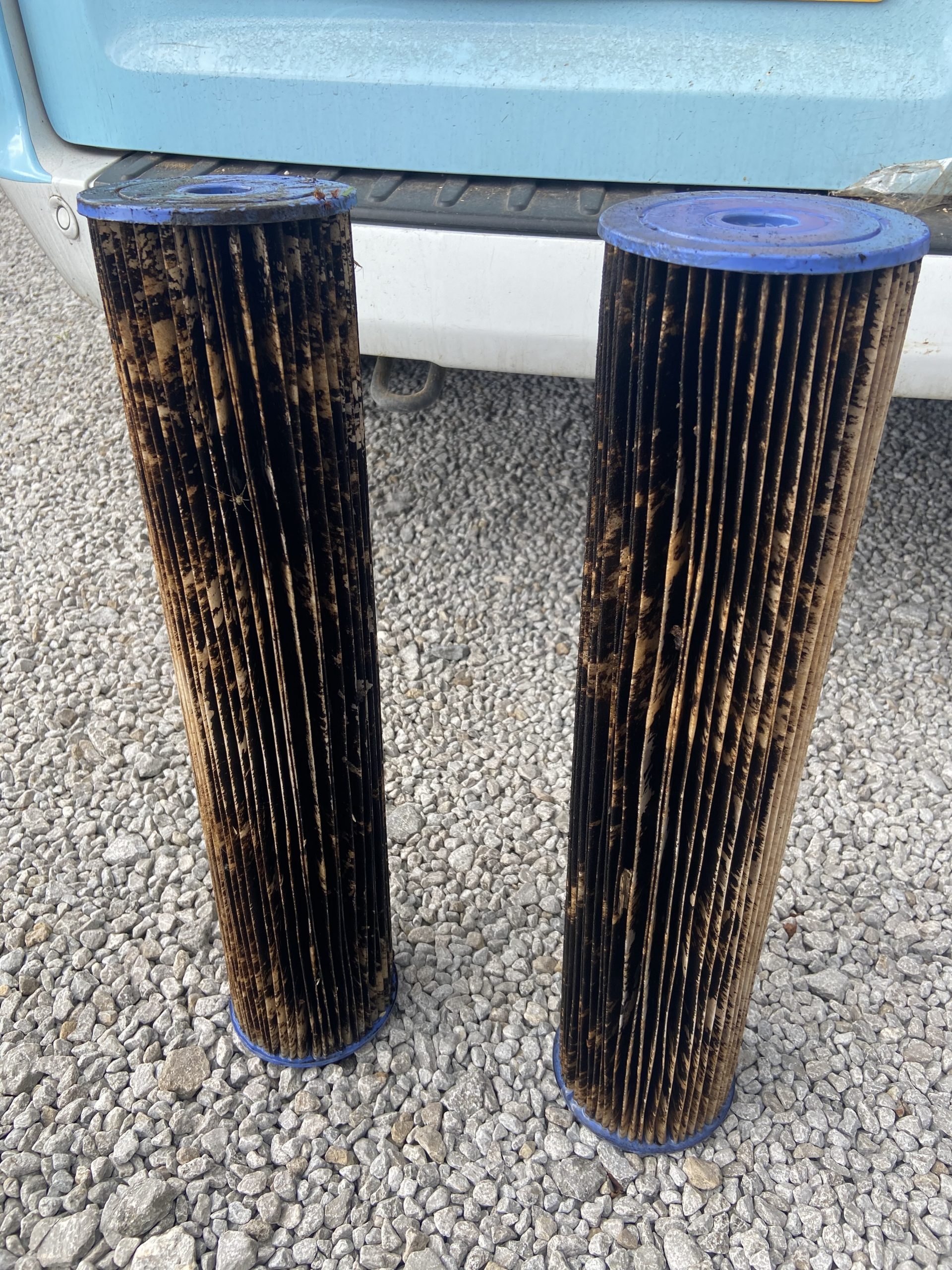
Manganese: What is it?
Manganese is a metal which is often found in the ground. In small quantities it is essential to human health as it helps enzymes break down certain foods in our bodies. It is used in various processes around the world to make various chemicals, fertilisers and is often used to supplement animal feeds.
Why should I remove manganese from my private water supply?
Manganese is a common contaminant found naturally in private water supplies around the UK.
When present in a water supply it can cause unsighly staining on fixtures and fittings and can even cause discolouration in washed clothes.
High Levels of manganese can make the water turn a brownish colour, give the water a musty/earthy smell and can have an unpleasant metallic taste.
Water distribution / central heating systems can suffer reduced flow and increase ongoing maintenance costs due to manganese building up in pipework.
How do I remove Manganese from my drinking water supply?
The most common way to remove manganese is by using an ion exchange system. These Ion Exchange systems replace the manganese ions with sodium ions using a positively charged resin.
Water Testing
The starting point for any water treatment design is a representative water analysis that is complete and accurate. Using a UKAS Accredited Laboratory. Two of our engineers, here at Prosep Filter Services, have undergone formal training and are now certified to carry out water sampling to UKAS accredited standards.
Existing Systems
At Prosep Filter Services we have taken on many Water Treatment Systems installed by other companies like ourselves. We are always happy to work with new customers.
Iron & Manganese Reduction
Prosep Filter Services offer various sizes of systems to remove iron and manganese from your private water supply. We have technical experts on hand to help resolve any problems you may have with your borehole or spring water supply.
Hard Water
Any water supply that has a high mineral content, may be classed as hard water. The most common minerals that cause hard water are calcium and magnesium. These minerals are picked up by water, as it passes through (typically) limestone rocks, on its way down into the water table.
pH Correction
Water in which the pH is below 7 is acidic. Acidic water accelerates corrosion in pipe work, It can also cause staining on fittings in baths, sinks and other appliances. Acidic water can leave a distinctive ‘metallic’ taste when drunk.
